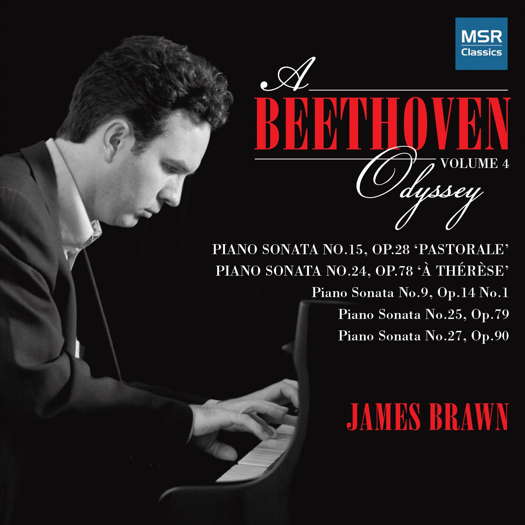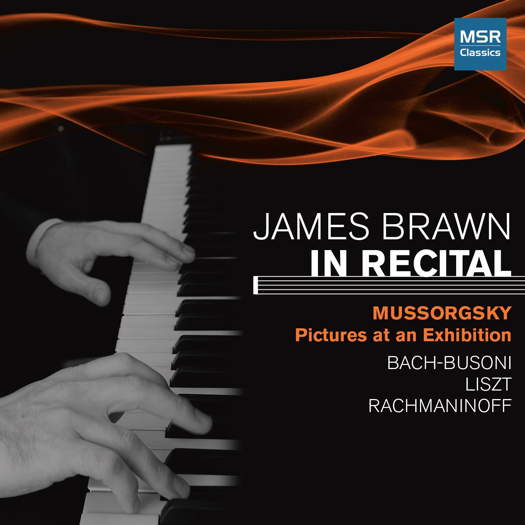 SPONSORED: CD Spotlight. True Command - James Brawn plays Bach, Liszt, Musorgsky and Rachmaninov - recommended by Andrew Schartmann.
SPONSORED: CD Spotlight. True Command - James Brawn plays Bach, Liszt, Musorgsky and Rachmaninov - recommended by Andrew Schartmann.
All sponsored features >>

An Ambitious Conceit
MIKE WHEELER is impressed by
James Brining's production of
Mozart's 'The Magic Flute'
James Brining's production of
Mozart's 'The Magic Flute'
Children were central to James Brining's production of Mozart's The Magic Flute for Opera North. We saw the whole story through the eyes of a girl of about eight or nine, beginning with her trying to shut out the sour atmosphere of an adult dinner-party in the next room, putting on a record as the overture begins, and slipping down the rabbit-hole of her picture-book to begin her adventure, and fall in with the children of Sarastro's kingdom - Theatre Royal, Nottingham, UK, 19 March 2019.
And it was no accident that Brining's previous work with Opera North was a joint production, with West Yorkshire Playhouse, of Sondheim's Into the Woods. The suspended trees, with trailing, blood-stained roots, that appeared from time to time, conjured the dark forest setting of many a fairy-tale. But there was plenty of light as well as dark. (Brining's fascination with the different types of contrast in the opera was a basic theme of his production.) Douglas O'Connell's video projections, full of fantastic plants and animals - the Three Boys flew in on the back of an enormous bird - on the mobile walls of Colin Richmond's set, added to atmosphere, while a modern fairy-tale of a different kind was alluded to by the light sabres brandished by the Three Ladies to kill the serpent pursuing Tamino in the opening scene.
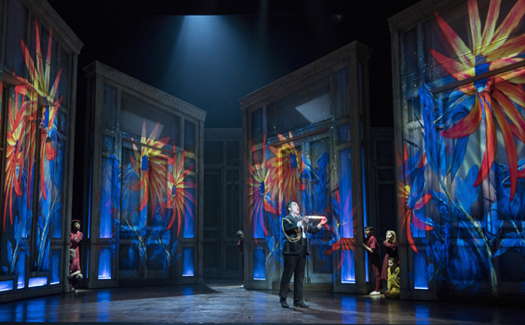
A scene from James Brining's The Magic Flute for Opera North. Photo © 2019 Alastair Muir
It was an ambitious conceit, and it came off superbly, in both theatrical and musical terms, aided by Jeremy Sams' witty English libretto. Conductor George Jackson, standing in for period-style specialist Robert Haworth for the two Nottingham performances, balanced the solemn and the comic, with fresh, alert playing from the Opera North Orchestra.
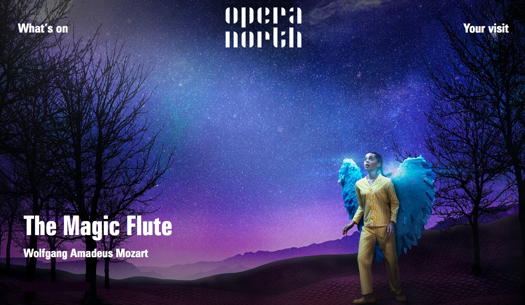
Online publicity for Opera North's 'The Magic Flute'
As Tamino, Kang Wang was a touch underpowered at first, but his tone warmed generously later. Dubliner Gavan Ring's chirpy leprechaun of a Papageno was the perfect foil.
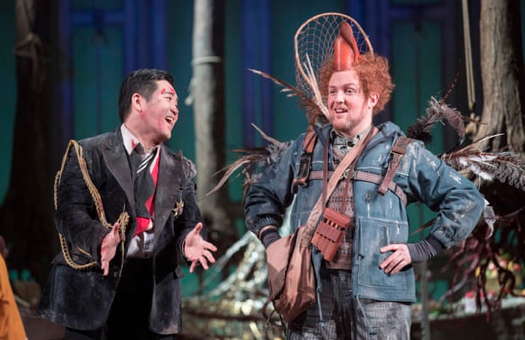
Kang Wang (left) as Tamino with Gavan Ring as Papageno in James Brining's The Magic Flute for Opera North. Photo © 2019 Alastair Muir
Ellie Laugharne's Pamina - taking over the role in Nottingham and Newcastle from Vuvu Mpofu - was very much on her guard as Sarastro's prisoner, and repelled - who wasn't? - by John Findon's disgustingly sleazy Monostatos, but showed spirit and determination as she threw her lot in with her two mis-matched rescuers. Her big Act II aria of despair at the thought that Tamino had abandoned her was deeply moving. Samantha Hay was an appropriately theatrical Queen of the Night, hitting every one of those celebrated top notes in her Act II revenge aria with pin-sharp accuracy. As Sarastro, John Savournin was generally more baritonal than some, but the bottom notes were all securely in place.

John Savournin
In a costume and hair-style verging on the Mephistophelian, he presided over what had clearly degenerated into a cult, with women expected to know their place - their uniform robes glancing in the direction of The Handmaid's Tale. So it was good to find Amy Freston's pert Papagena emerging from the anonymity to anticipate the break-out to come in her sparring with Papageno.
There were moments in Act II when the dramatic tension dipped a little, partly, perhaps, because the Three Boys were just a little statuesque and matter-of-fact (but then, I guess, we've been spoiled by the puckish, mischievous threesome in the Ingmar Bergman film). But the feeling soon passed, and the final celebration was exhilarating, as Tamino and Pamina came through their trials and proved themselves worthy of ruling in Sarastro's place. The women of the community symbolised the new order by freeing themselves from their restrictive head-pieces, and as everyone rushed forwards, Sarastro was suddenly isolated and irrelevant at the back of the stage. The quizzical gaze the girl turned on him when everyone else had left was the perfect pay-off.
Derby UK



